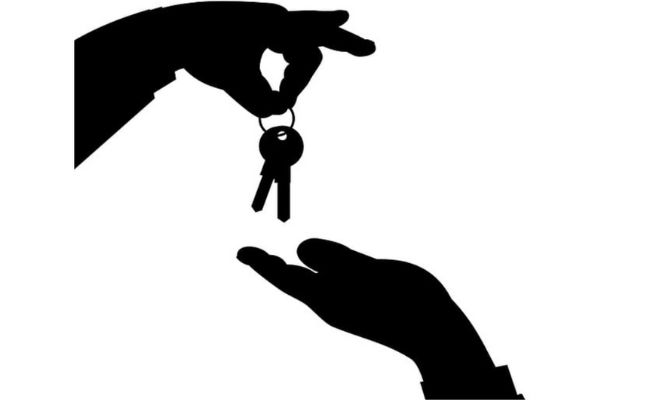Last Updated on February 23, 2024 by CREW Editorial
Navigating the complex world of real estate transactions can be daunting, especially when it comes to the legalities. Whether you’re buying your dream home or selling a cherished property, the importance of having a savvy real estate lawyer by your side can’t be overstated.
But with so many options out there, how do you zero in on the right legal expert for your needs? Fear not, because we’re about to dive into some insider tips that will steer you towards a real estate lawyer in Ontario who’s not just competent but perfect for your situation.
Stay tuned as we unpack the essentials of finding a lawyer who will not only guide you through the legalese but ensure your real estate journey is as smooth as possible. You’ll learn how to sift through the noise and find a trusted professional who understands the nuances of your local market.
Why You Need a Real Estate Lawyer
Embarking on a real estate transaction, you’ll soon discover the critical role of a real estate lawyer in ensuring a smooth process. As intimidating as the cluster of legal documents might appear, your real estate lawyer delves into the paperwork, making sense of complex clauses and stamping out pitfalls that could disrupt your transaction.
In Canada, the legal landscape governing property transactions mandates a meticulous approach where legal expertise is non-negotiable. Your real estate lawyer isn’t just a navigator through dense contractual jungles; they’re an essential compliance officer. Their in-depth understanding of property laws provides the sturdy backbone you need when buying or selling a home.
Imagine trying to access Ontario’s Electronic Land Registration System without the right credentials. You’d quickly hit a wall. This system, integral for registering property transfers and searching for land records, is accessible only to lawyers and select professionals. It reveals a significant facet of their role – bridging the gap between legal requirements and your goals.
Moreover, the value of a real estate lawyer extends beyond document scrutiny. They are your financial sentinel, accurately handling the calculations and financial nuances accompanying property transactions. Coupled with their ability to double-check legalities, they safeguard you from overstepping legal boundaries and encountering unexpected liabilities.
While steering through the real estate transaction, consider the engagements between your lawyer and other professionals like your realtor or mortgage broker. Evaluate the synergy and timeliness within this professional triad, and you’ll appreciate the behind-the-scenes labor they expertly manage.
Remember, the utility of a real estate lawyer doesn’t dissolve post-closing. Whether it’s a future refinance, property investment, business matter, or the drafting of a will, their expertise spans diverse legal needs. Once proven effective, a real estate lawyer not only delivers results but becomes a longstanding ally in your legal affairs.
Factors to Consider When Choosing a Real Estate Lawyer
Choosing the right real estate lawyer can be the linchpin to a successful property transaction. There are several key factors you should consider to ensure that you’re partnering with a professional who will guide you effectively through the maze of legalities.
Experience
The experience of your real estate lawyer can make a substantial difference in your transaction. A seasoned lawyer will have had the opportunity to encounter diverse scenarios and overcome various challenges within the real estate realm.
Look for someone who has:
- Handled numerous transactions similar to your case
- Practiced specifically in real estate law for several years
- Knowledge of local real estate regulations in your province
Seeking a professional with a wealth of experience means you’re likely to receive knowledgeable guidance which can streamline your transaction and potentially save you from any unforeseen pitfalls.
Reputation
In the legal world, a lawyer’s reputation often precedes them. A commendable reputation is an indicator of reliability, competence, and satisfaction amongst past clients. To gauge a lawyer’s reputation, you should:
- Ask for referrals from people you trust who have recently completed a real estate transaction
- Read through online reviews and testimonials
- Check with the local bar association for any records or recognitions
A lawyer who has earned accolades from clients and peers alike is likely to carry those high standards into the service they provide for you.
Fee Structure
Understanding the fee structure and being clear on the financial commitments from the outset is crucial when selecting a real estate lawyer. Transparent fee arrangements can help avoid future surprises regarding costs. When discussing fees, consider the following:
- All-inclusive quotes for fees and disbursements to avoid hidden costs
- An itemized breakdown of what you’re being charged for
- Realistic estimates from lawyers with varying degrees of experience
Remember, the lowest fee may not always equate to the best value. A lawyer offering a competitive but realistic fee is likely considering the complexities of your situation and the level of expertise required to manage it.
When choosing a real estate lawyer, a balanced assessment of experience, reputation, and fee structure can lead you to a professional suitable for your unique needs. Engaging the right legal help can secure not just a successful transaction today but also a trustworthy advisor for your future real estate endeavours.
Where to Find a Good Real Estate Lawyer
When embarking on the quest to find the right legal representation for your real estate transactions, you’ve got a variety of options at your fingertips. Let’s navigate the resources available to ensure you make an informed selection.
Personal Referrals
Start with the power of word-of-mouth by seeking personal referrals. Your network – friends, family, and colleagues – can provide valuable insights based on their first-hand experiences. A recommendation from someone you trust carries weight because it’s based on a history of satisfactory service and proven results. It’s likely that others in your circle have been through similar processes and can share the positives and negatives of working with their real estate lawyers. Leverage their experiences to create a shortlist of potential candidates.
Bar Association Referral Services
Next, utilize the resources of the provincial bar association. They maintain lists of licensed practitioners which can be filtered by specialty, including real estate law. Here are some reasons why consulting the bar association makes sense:
- Verified Licenses: Ensures the lawyers are eligible to practice in your location.
- Specialisation Confirmation: Helps you verify lawyers who specialise in real estate.
- Disciplinary Records: Provides transparency about any past disciplinary actions.
By contacting the bar association or checking their online directories, you can find lawyers near you who are well-versed in the specifics of local real estate law.
Online Directories
The digital landscape offers myriad options for finding a lawyer, with plenty of websites listing qualified professionals. However, when searching online, it’s crucial to navigate to reputable sites to ensure the information you gather is reliable. Look for platforms that go beyond mere listings to offer client reviews or matching services based on your unique needs. The Law Society of Ontario, for example, provides a comprehensive directory that includes information on lawyers’ insurance and any practice restrictions.
Local Real Estate Agents and Brokers
Finally, consider talking to local real estate agents and brokers. These professionals engage frequently with real estate attorneys and can provide recommendations based on their direct experience with legal partners during transactions. Since agents and brokers have a stake in smooth closings, they’re likely to suggest lawyers who facilitate successful outcomes. Remember, a competent agent’s network can be an invaluable asset in your search for a good real estate lawyer.
Choosing the right real estate lawyer is a pivotal step towards ensuring your property transaction is handled with expertise and care. Make use of these resources for an informed decision that aligns with your real estate goals.
Questions to Ask When Interviewing a Real Estate Lawyer
Specialization in Real Estate Law
When you start your journey to buy or sell property, you’ll encounter legal complexities that demand an expert’s touch. So first, ensure you’re dealing with someone who’s not just a jack-of-all-trades but a master of one—real estate law. You should inquire about the number of years they’ve dedicated to this field and whether it’s their principal area of practice. This could involve asking:
- How long have you been involved with real estate law specifically?
- What percentage of your cases are related to real estate?
Knowing they have a track record of dealing with transactions similar to yours can provide peace of mind that your legal matters are in the right hands.
Availability and Responsiveness
A lawyer’s expertise is only as valuable as their ability to be accessible when you need them. Quick response times are crucial. You may want to know:
- What’s your policy on returning calls or emails?
- Will I be able to contact you directly if I have urgent questions?
Finding out how a potential lawyer handles communication can prevent future frustration and ensure your transaction isn’t hampered by avoidable delays.
Communication Style
Effective lawyering goes beyond legal maneuvering—it’s about how well your lawyer can communicate with you. Look for a lawyer who distills complex legal concepts into understandable language. Consider asking:
- How do you explain complicated real estate terms to your clients?
- Can you provide examples of how you’ve helped clients understand the legal aspects of their transactions?
Their answers will paint a picture of their communication methods and how those will align with your needs.
Approach to Problem-Solving
Real estate deals often hit snags, and that’s when you’ll value a lawyer with a proactive and creative approach. To gauge their problem-solving skills, explore questions like:
- How do you handle unexpected issues during a transaction?
- Can you share an experience where you spotted potential problems early and navigated through them successfully?
The ability to foresee and tackle issues can mean the difference between a seamless transaction and a real estate nightmare.
Fees and Billing Practices
Money matters, and transparent discussion on fees and billing is essential. Clarify the financial aspects upfront to avoid surprises. Pertinent questions might be:
- Can you break down your fee structure for me?
- Are there any additional charges I should be aware of, such as for disbursements or searches?
It’s vital to grasp the complete picture of potential costs in order to budget effectively for your legal expenses.

How to Assess the Suitability of a Real Estate Lawyer
When you’re on the hunt for a real estate lawyer, you want to ensure that you’re entrusting your property transaction to the best possible professional. By doing your homework and knowing what to look for, you’ll be in a strong position to assess a lawyer’s capability to represent your interests effectively. Here’s how you can evaluate their suitability:
Reviewing Credentials and Qualifications
The first step is to check the credentials of any potential real estate lawyer. You’re looking for someone with a robust track record in the field of real estate law. This means:
- Specialization: They should have an evident focus on real estate law.
- Experience: Look for lawyers who have facilitated numerous transactions similar to yours.
- Education: Ensure they have received their legal education from a reputable institution.
- Memberships: Membership in real estate law associations could be indicative of their commitment to the field.
Make sure you’re choosing a specialist, not a generalist. Real estate law has its complexities, and you need someone who navigates it daily.
Checking for Any Disciplinary Actions
Verify whether the lawyer you’re considering has had any disciplinary actions taken against them. This info can typically be found by:
- Searching the provincial law society’s database for any past or current restrictions on their practice.
- Checking with the local bar association to confirm that they’re in good standing.
Disciplinary actions are red flags that warrant further investigation before proceeding.
Reading Client Reviews and Testimonials
Hearing from those who’ve walked before you can provide invaluable insight into a lawyer’s capabilities. When reading reviews and testimonials:
- Check reputable sites like ThreeBestRated for well-rounded perspectives.
- Don’t just focus on positive feedback; assess negative reviews for patterns that might be concerning.
- Look for comments on their communication, efficiency, and problem-solving abilities.
Remember, personal recommendations from friends and family often hold more weight since they can give detailed accounts of their experiences.
Requesting a Consultation
Finally, a consultation is your opportunity to:
- Assess the lawyer’s responsiveness. Did they reply to your email promptly?
- Gauge their team’s competence. Is there a team and do they seem knowledgeable?
- Explore their approach. Do they ask insightful questions and offer bespoke solutions?
During the consultation, observe if they explain complex legal terms in an easy-to-understand fashion. This is crucial for a smooth and transparent client-lawyer relationship.
By undertaking these steps, you’ll gather enough information to make an informed choice about whether a particular real estate lawyer is not only qualified but also the right professional to represent your interests in your real estate endeavors. Remember, your real estate journey is significant, and ensuring you have the right legal guidance is paramount.
Conclusion
Securing the right real estate lawyer is pivotal in safeguarding your interests. Armed with the knowledge of what to look for and where to look, you’re now equipped to navigate the legal landscape with confidence. Remember, assessing their experience, reputation and how they charge is just as crucial as your personal rapport with them. By asking the right questions and doing your due diligence, you’ll find a legal ally who not only understands the intricacies of real estate law but also aligns with your communication style and problem-solving approach. Trust your instincts and the information at your disposal to make a choice that feels right for you. Your ideal real estate lawyer is out there, ready to guide you through your property journey with expertise and dedication.











